Libraries supporting citizen science: NSK hosts one of CeOS_SE project’s closing events
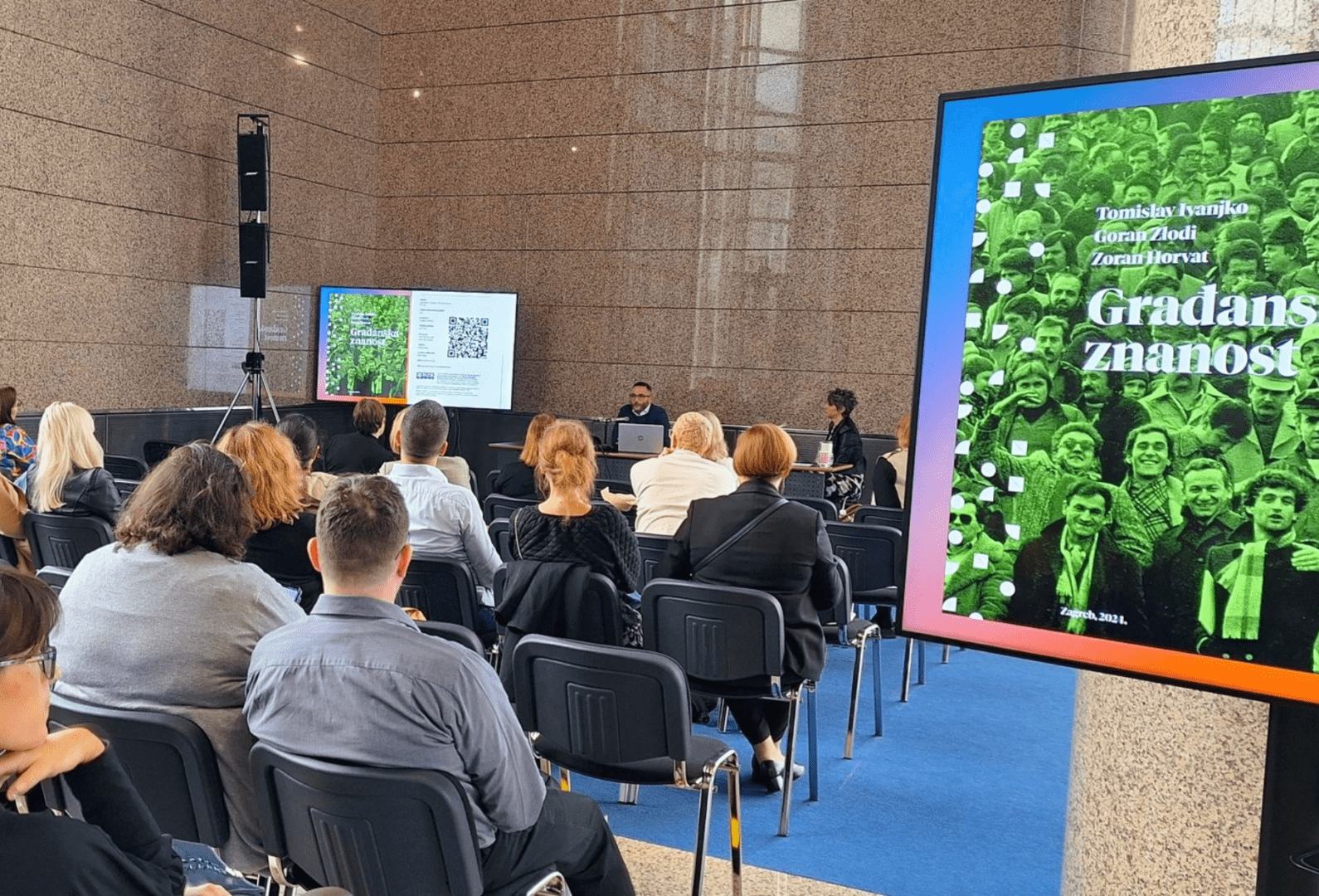
On 30 October 2024, the National and University Library in Zagreb (NSK) hosted one of the programmes closing Citizen-Enhanced Open Science in Southeastern Europe Higher Education Knowledge Hubs (CeOS_SE), a 2022-2024 research project aimed at including European citizens in pan-European efforts focusing on open science.
Bringing together some 60 participants from several countries and focusing on the significance of open science, the conference provided insight into examples of best practice when it comes to citizen science initiatives.
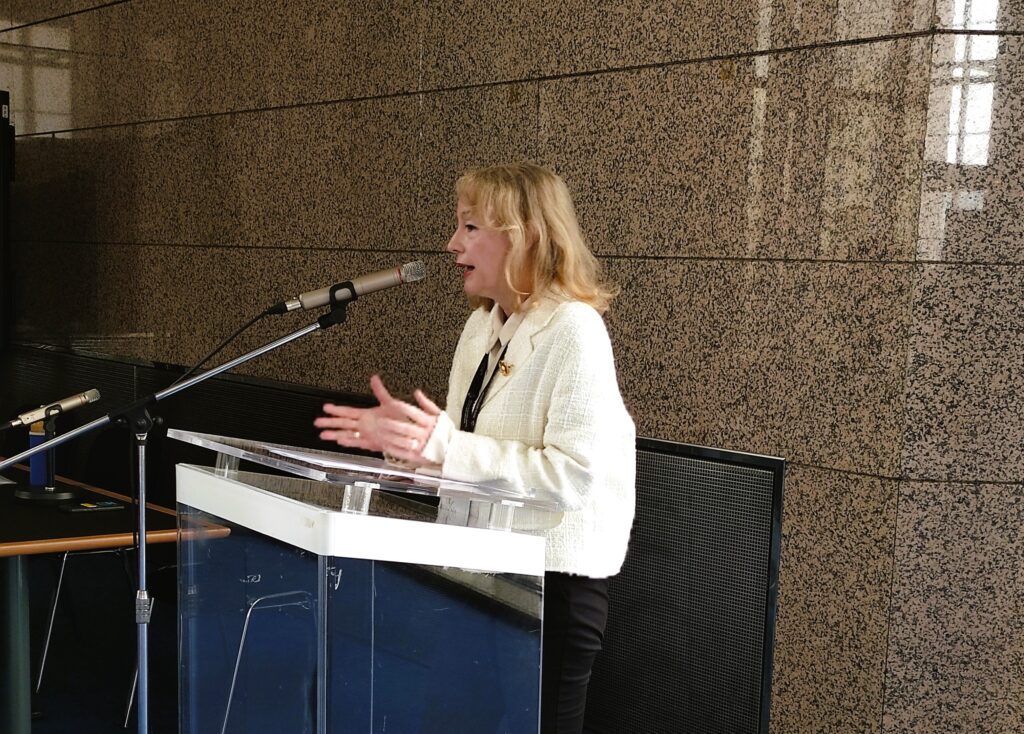
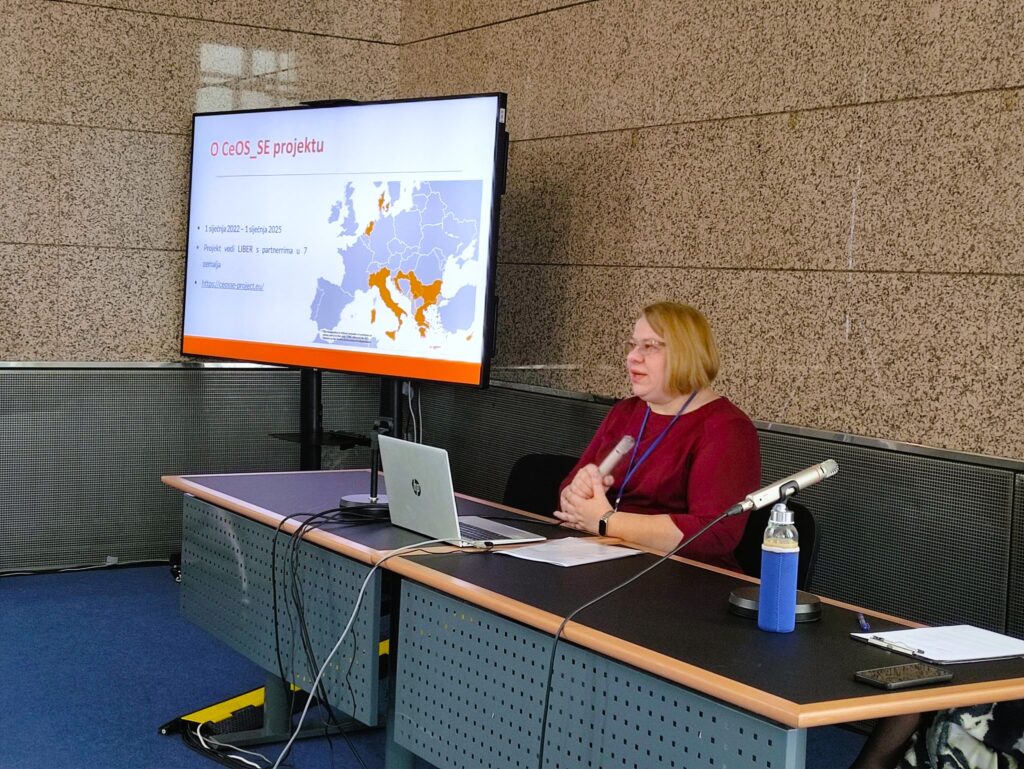
Following the opening remarks by the Zagreb University Library Affairs Assistant to the NSK Director General Dr Dijana Machala, who emphasised the important role of libraries in supporting science through citizen science programmes, the conference’s first part featured a presentation by the project’s coordinator and NSK Library Adviser Alisa Martek focusing on the project’s results, after which a member of the project team and NSK staff member Dolores Mumelaš presented all the citizen science programmes that NSK conducted as part of the project, while the Associate Professor at the Zagreb university’s Faculty of Humanities and Social Sciences Tomislav Ivanjko presented his book on citizen science (Građanska znanost), which provides the theoretical framework of the field of citizen science, but also offers practical advice for managing citizen science projects.
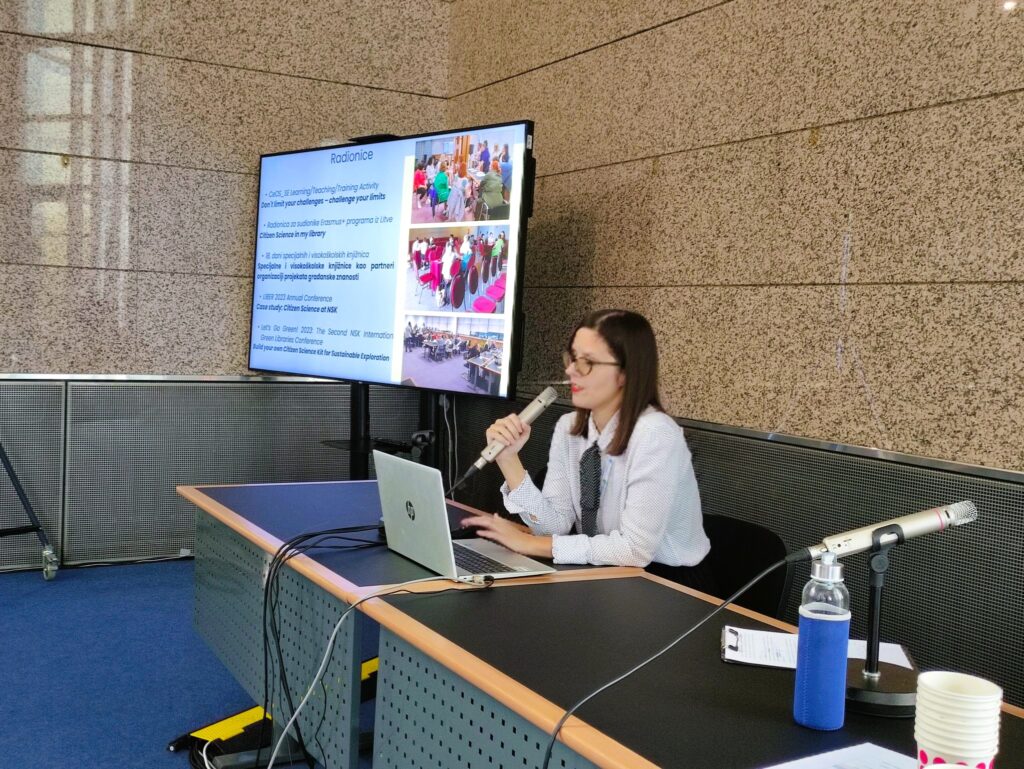
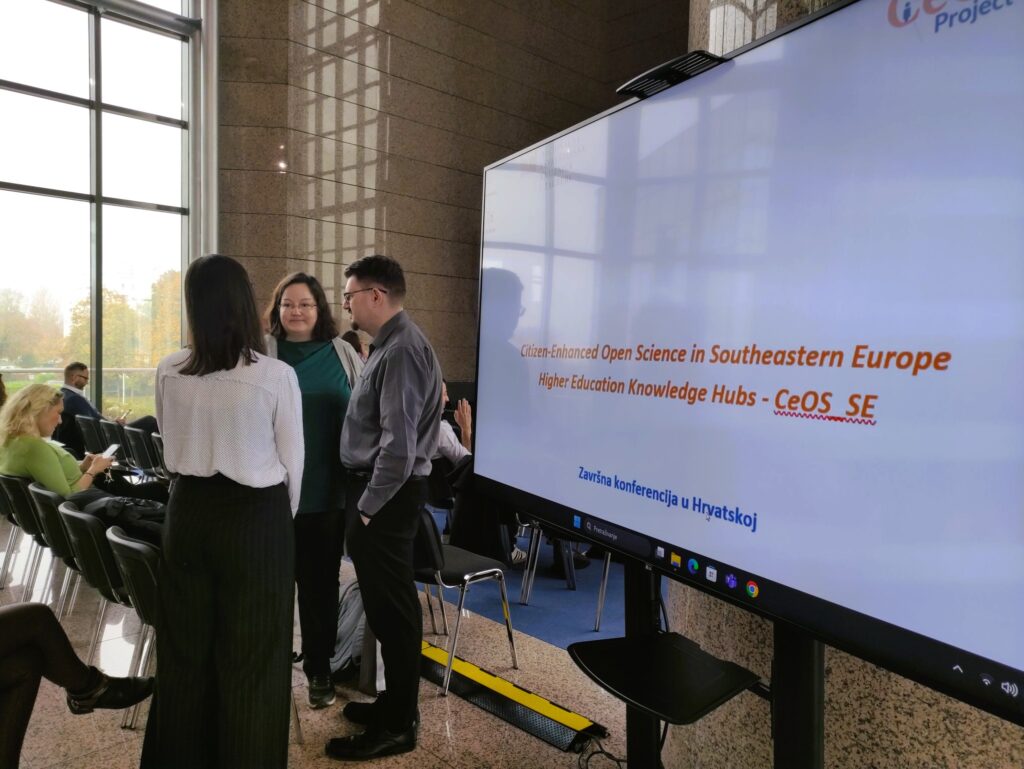
Libraries – valuable partners in citizen science projects and initiatives
The conference’s second part spotlighted examples of best practice from several universities. First, Associate Professor at the University of Zadar Marijana Tomić presented the activities in this context of the University’s research lab focusing on the transliteration of the Glagolitic manuscripts (GlagoLab – Centar za istraživanje glagoljaštva Sveučilišta u Zadru), while Associate Professor Drahomira Cupar presented VERA Hub, a platform providing access to information on citizen science activities in the field of social sciences and humanities and offering networking opportunities.
The DigiSport citizen science project, used to illustrate how sports photos may be useful in underpinning the main research material, was presented by Professor at the Zagreb university’s Faculty of Humanities and Social Sciences Goran Zlodi, while a librarian and consultant at the University of Ljubljana’s Central Technical Library Mitja Vovk Iskrić presented Slovenia’s national citizen science network and related national platform (CITIZEN.SCIENCE.SI), making available data on all citizen science projects in Slovenia.
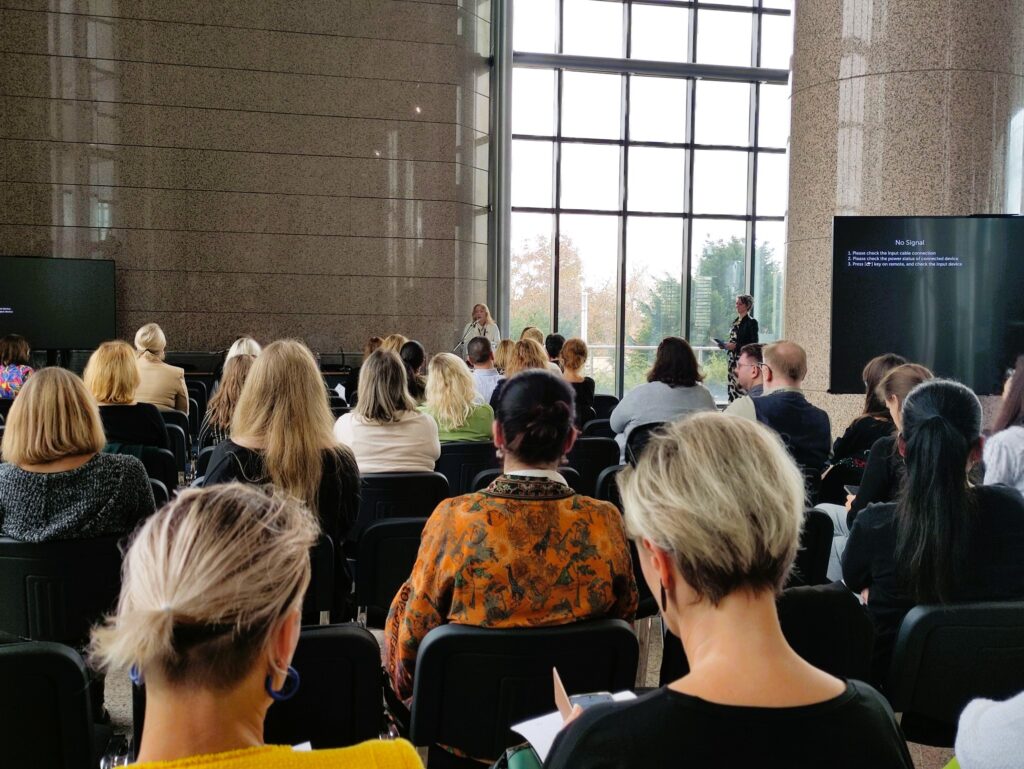
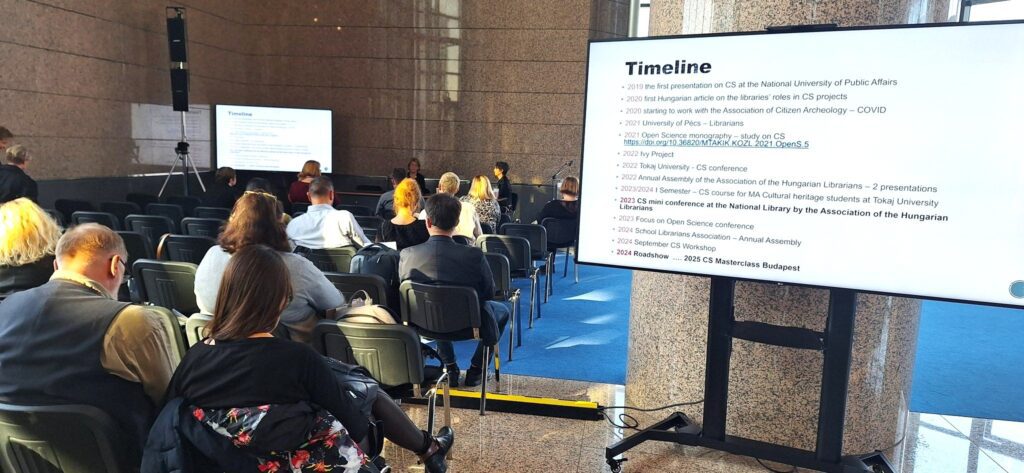
The Deputy Director General of the Library and Information Centre at the Hungarian Academy of Sciences Dóra Gaálné Kalydy gave a Hungarian perspective on citizen science projects and the advantages and challenges that she experienced in her work in this context, and Marina Vidović Krušić from the Križevci University of Applied Sciences presented the Križevci university’s citizen science project aimed at reviving the university’s cultural heritage (Revitalizacija kulturne baštine Visokoga gospodarskog učilišta u Križevcima).
The programme provided a detailed insight into all the project’s stages and provided opportunities for the exchange of ideas and professional experiences focusing on citizen science and the role of libraries in its use and development.
